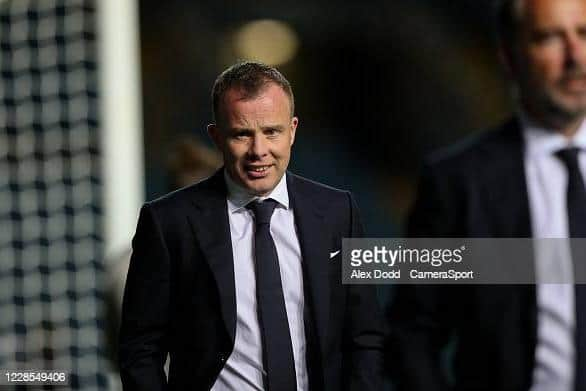Leeds United CEO Angus Kinnear let Fan-Led Review points get lost in over-the-top comparison
and live on Freeview channel 276
They weren’t of course, but over-the-top comparisons are all the rage these days.
The problem for Kinnear is that his comparison between increased financial redistribution to the rest of the football pyramid and a beefed-up transfer levy, and Maoist collective agriculturalism, which played a role in a subsequent famine that killed tens of millions of people, only helped to feed football’s hysterical headline machine. It was a bit much and a bit unnecessary, especially right now.
Advertisement
Hide AdAdvertisement
Hide AdLeeds have not had the best start to the season and certainly at the time of Kinnear sitting down to write his notes, were perhaps better advised to keep their heads down and let the football take centre stage.


His programme notes, however, grabbed headlines and attracted criticism. Of course they did.
It detracted from his perfectly fair points too, that there was much to applaud and support in the Fan-Led Review of Football Governance, that Whitehall involvement in the game’s regulation could hardly have prevented the Newcastle United takeover with any kind of straight face, that potential unintended consequences of radical change should be fully explored and that clubs outside the top flight should learn to live within their means rather than have their coffers inflated artificially by Premier League money.
Whether the CEO of a club who made significant losses going all-in on promotion to the Premier League is the right man to make that last point is certainly up for debate, however.
Advertisement
Hide AdAdvertisement
Hide AdLeeds do actually have much to teach other clubs in terms of how they did it, because they stayed within the rules of Financial Fair Play and sold players when they had to, maximising other revenue streams throughout the club to help, but no one was going to take kindly to any signs of a ladder being pulled up behind them, now that they’re in the big time, enjoying Premier League income.
And his suggestion that the main protagonists from 50 years ago still operating professionally today was evidence of sustainability would rankle with fans who have had to mobilize and chip in to save and rebuild their clubs, often in the wake of incompetent ownership or the reckless pursuit of unsustainable success. Brentford, Portsmouth, Leicester City, Swansea City, Chesterfield and Wycombe supporters all have tales to tell.
Kinnear and Leeds’ proactive stance on the European Super League was admirable and earned almost universal praise, but it’s natural to wonder if he and other CEOs who still have a good standing in the game are doing the talking on behalf of CEOs the country simply wouldn’t listen to.
“Football is a private-sector business and has flourished that way,” is a statement that could have emerged from any of the clubs accused of putting greed before the game earlier this year.
Advertisement
Hide AdAdvertisement
Hide AdUltimately though, no one should be surprised that Premier League clubs would have concerns about regulation or having to give up a bigger slice of the pie. To risk another over-the-top comparison, turkeys wouldn’t vote for Christmas and the job of a CEO is not to protect the game but find ways to give his club a competitive edge in every sense, financial and sporting. Kinnear is one of the current custodians entrusted with making Leeds United truly great again, not a man tasked with bringing equality to an entire sport.
Football does not belong to Premier League CEOs after all, but the people who invested their time, effort and passion in leading this review of the game, the people Marcelo Bielsa holds up as the most important in the game – the fans. Kinnear has worked hard to foster a down-to-earth dynamic at Leeds, with what he calls an open-door policy for fans and fan groups. In conversation both private and public he displays a refreshing realism about the state of the club and the game. Sending football fans to Google or the library to explore collective agriculturalism is not a look he ordinarily adopts, nor is it a good one. It’s also not enough to exclude him from the conversation or ignore him on this topic. Football has long needed to put its many heads together and come up with viable solutions to myriad problems. Shouting one another down and becoming entrenched in immovable positions must be left to the Sky Sports studio after a Manchester United game.
Club owners and CEOs have to be part of the conversation as this review settles over the coming weeks and months but it has to be a grown-up conversation, without hysteria, derision or mentions of Maoism.